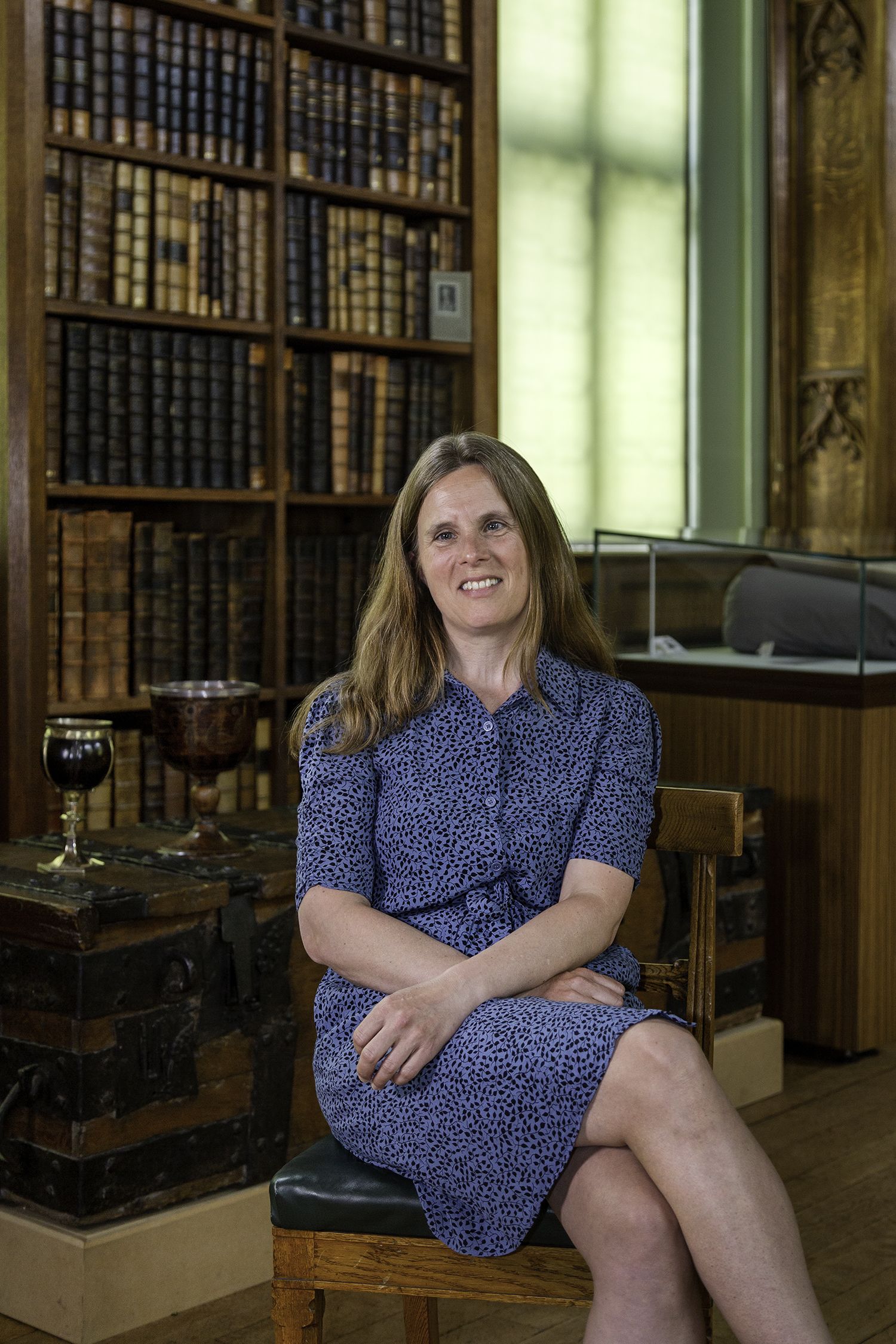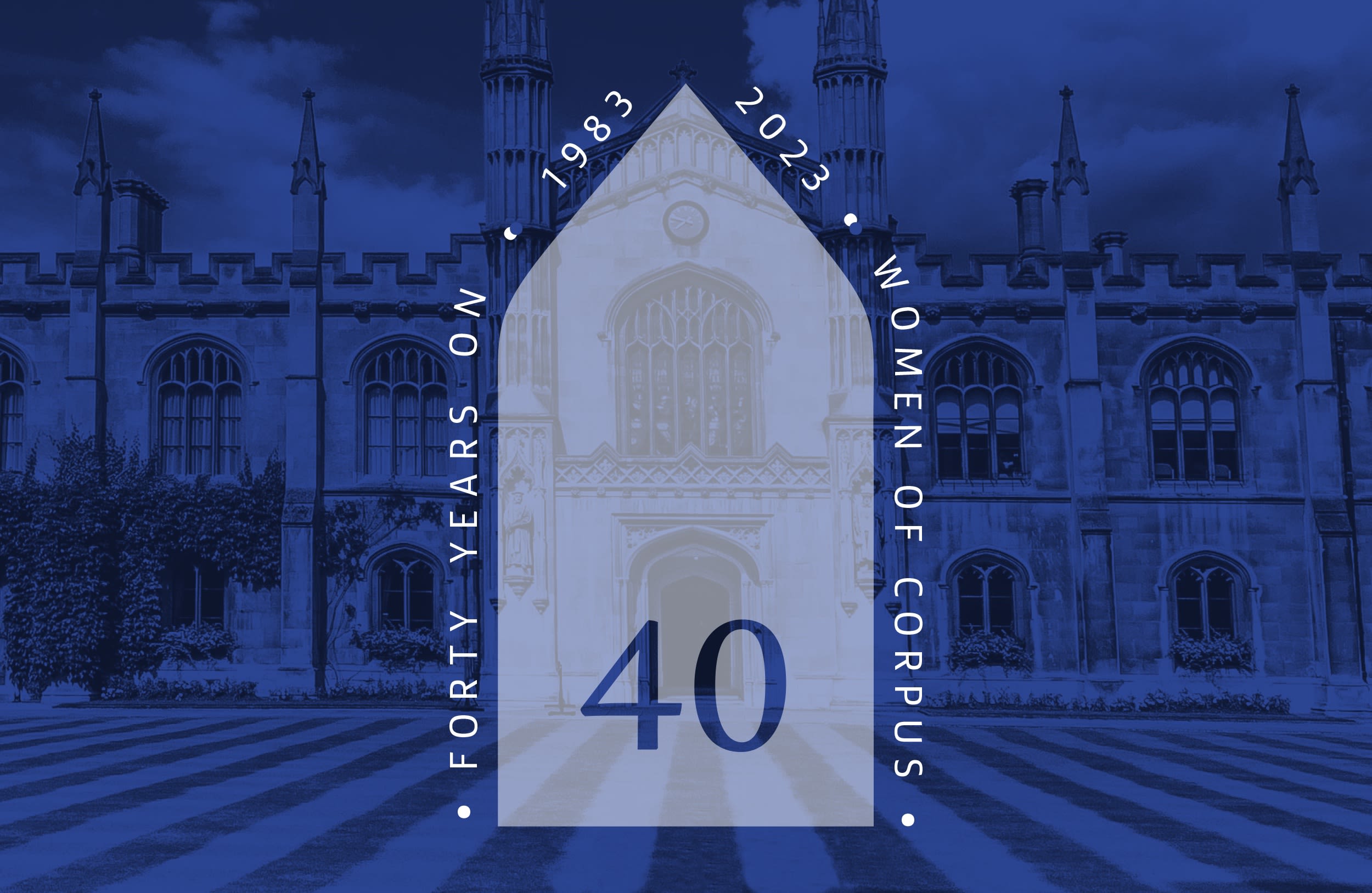Dr Jo Willmott
MA MPhil PhD
CLASSICS

“I chose the Wilkins Room in the Parker Library as the location for my portrait as it’s one of my favourite spaces in College. I have the privilege of holding our silver exhibitions there, so it felt the natural home for the objects I included. I also liked being close to things that are close to my area of research, even though they don’t feature in the photograph — there is a manuscript of Homer that I hope to consult in the future in the library.
I chose as my objects two pieces of silver from the College collection that are (albeit tangentially) connected with women in the history of the College. The coconut cup is part of the founding benefaction to the College, and one of those benefactors was Margaret Andrew. And the Neame cup was given to college by Mrs Mary Neame, possibly a relative of a member of College, who recognised the significance of the Parker arms on the bottom when her father-in-law found it in a grocer’s in Highgate in the 1930s!
My hidden ‘Easter egg’ is a photograph of my mother’s mother’s mother, Florence Syrett. She was the first of the line of female teachers in my family, teaching children in India (despite the wishes of her father). I discovered I had moved to the part of London where she grew up, and I named my oldest daughter after her.
I have happily been a Fellow of Corpus for ten years now. My grandmother (Florence’s daughter) took her Tripos exams at Newnham in 1930 (in the new degree of Archaeology and Anthropology) and was only awarded her degree in 1999. This makes me particularly pleased to be able to be a Fellow of a Cambridge college.”
Jo Willmott is a linguist, teaching papers on linguistics and Greek and Latin language in the Classics Faculty, where she was also an undergraduate and postgraduate student. The primary topic of her research is the Greek language. Through the close semantic and pragmatic analysis of texts she investigates questions connected to various grammatical categories, including modality and negation, as they develop over the course of the long history of the language.
